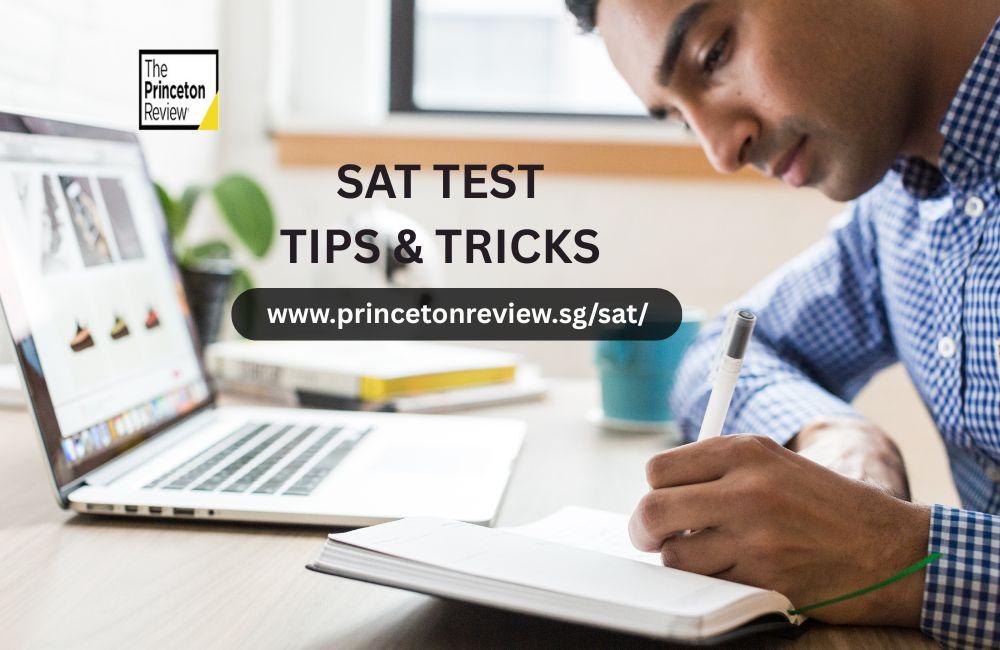Introduction to the SAT
The SAT Test can feel like a daunting mountain to climb for many students. With its rigorous format and challenging questions, it's no wonder that anxiety often accompanies the preparation process. But fear not! This standardized test is not insurmountable. With the right strategies and adequate preparation, you can conquer it with confidence.
Whether you're just starting your study journey or looking for those final tips before test day, understanding the SAT's intricacies is essential. In this guide, we'll explore everything from the structure of the SAT Test to proven techniques for each section. Let’s unlock your full potential and set you on the path toward excellence!
Understanding the Format and Scoring of the SAT
The SAT Test is structured into several key sections: Reading, Writing and Language, Math (with and without a calculator), and an optional Essay. Each section tests different skills vital for college readiness.
Reading consists of passages from literature, history, social studies, and the sciences. It assesses comprehension and analytical abilities. You’ll encounter questions that require you to interpret graphs or understand the author’s intent.
Writing and Language focuses on grammar, punctuation, and effective language use. You'll be asked to revise sentences or choose the best word choice in context.
Math is divided into two parts—one allows a calculator while the other does not. This section emphasizes problem-solving skills across various topics such as algebra and data analysis.
Scoring ranges from 400 to 1600 points; each section contributes to this total score. The essay is scored separately but can enhance your overall application if done well.
The Importance of Preparation
When it comes to the SAT Test, preparation is key. Many students underestimate the impact that diligent study can have on their scores. The more familiar you are with the content and structure, the less daunting it becomes.
Preparation allows you to identify your strengths and weaknesses. By focusing on areas where improvement is needed, you can allocate your study time effectively.
Additionally, engaging in a structured SAT Test class guides experienced instructors. They offer insights into common pitfalls and strategies specific to each section of the exam.
Consistent practice also builds confidence. As you tackle practice questions regularly, anxiety levels drop significantly when test day arrives. You’ll find yourself approaching each section with increased assurance and focus.
Investing time in preparation serves as a solid foundation for achieving excellence on the SAT Test.
Proven Strategies for Each Section (Reading, Writing and Language, Math, Essay)
For the Reading section, focus on active reading techniques. Read passages with a purpose and highlight key ideas. Don’t get bogged down by unfamiliar vocabulary; context clues can often guide you.
When tackling Writing and Language, familiarize yourself with common grammar rules tested on the SAT Test. Practice identifying errors in sentence structure and punctuation for quick decision-making during the test.
Math requires both conceptual understanding and practice. Review important formulas but also work on applying them to various problem types. Practicing word problems enhances your ability to translate real-world scenarios into mathematical expressions.
The Essay demands clarity and organization. Develop a clear thesis statement early in your writing process. Use specific examples from provided texts to support your arguments, making sure each paragraph flows logically into the next for coherence.
Utilizing Resources and Practice Tests
Utilizing resources and practice tests is crucial for SAT Test success. Many students underestimate the power of effective preparation tools.
Start by exploring official SAT materials. The College Board offers free sample questions and practice tests that mirror the actual exam format. This helps you understand what to expect on test day.
Online platforms also provide a wealth of resources, from video tutorials to interactive quizzes. Websites like Khan Academy offer personalized study plans tailored to your strengths and weaknesses.
Don’t forget about study groups. Collaborating with peers can enhance your understanding while keeping motivation high.
Set aside dedicated time each week for practice tests. Simulating real test conditions will help build confidence and improve timing skills, which are essential for mastering the SAT Test.
Regularly reviewing incorrect answers is equally important; it allows you to identify patterns in mistakes and refine your strategies moving forward.
Time Management Tips for Test Day
As test day approaches, mastering time management is crucial for success on the SAT Test. Start by familiarizing yourself with the structure of the exam. Knowing how many questions you’ll face in each section helps create a mental map.
Arrive early at your testing location to minimize stress and give yourself time to settle in. Bring a watch or timer to keep track of your pace; just remember not to obsess over it.
During the test, allocate specific times per question but remain flexible. If one question stumps you, move on and return later if time permits. This prevents moments of frustration from derailing your focus.
Practice deep breathing techniques before diving into each section. Staying calm enhances concentration and helps maintain a steady rhythm throughout the exam.
Ensure you take brief breaks between sections if allowed—these can recharge your mind for sharper performance on subsequent tasks.
Conclusion
Success on the SAT Test is indeed attainable with dedication and effective preparation strategies. Understanding the test format, familiarizing yourself with its scoring system, and recognizing the significance of studying can set a strong foundation for any student.
By employing proven techniques tailored to each section—be it Reading, Writing and Language, Math, or even the Essay—you significantly improve your chances of achieving high scores. Utilizing available resources such as practice tests enhances your ability to tackle real exam conditions confidently.
Time management on test day cannot be overstated; learning how to pace yourself will ensure that you showcase your knowledge without feeling rushed. With hard work, commitment to preparing effectively through an SAT Test Class or self-study program, success is within reach.



